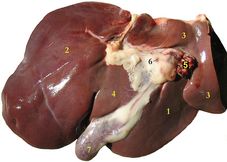- Home
- About Us
- TSPT Academy
- Online Courses
-
Resources
- Newsletter
- Business Minded Sports Physio Podcast
- Day in the Life of a Sports PT
- Residency Corner
-
Special Tests
>
-
Cervical Spine
>
- Alar Ligament Test
- Bakody's Sign
- Cervical Distraction Test
- Cervical Rotation Lateral Flexion Test
- Craniocervical Flexion Test (CCFT)
- Deep Neck Flexor Endurance Test
- Posterior-Anterior Segmental Mobility
- Segmental Mobility
- Sharp-Purser Test
- Spurling's Maneuver
- Transverse Ligament Test
- ULNT - Median
- ULNT - Radial
- ULNT - Ulnar
- Vertebral Artery Test
- Thoracic Spine >
-
Lumbar Spine/Sacroiliac Joint
>
- Active Sit-Up Test
- Alternate Gillet Test
- Crossed Straight Leg Raise Test
- Extensor Endurance Test
- FABER Test
- Fortin's Sign
- Gaenslen Test
- Gillet Test
- Gower's Sign
- Lumbar Quadrant Test
- POSH Test
- Posteroanterior Mobility
- Prone Knee Bend Test
- Prone Instability Test
- Resisted Abduction Test
- Sacral Clearing Test
- Seated Forward Flexion Test
- SIJ Compression/Distraction Test
- Slump Test
- Sphinx Test
- Spine Rotators & Multifidus Test
- Squish Test
- Standing Forward Flexion Test
- Straight Leg Raise Test
- Supine to Long Sit Test
-
Shoulder
>
- Active Compression Test
- Anterior Apprehension
- Biceps Load Test II
- Drop Arm Sign
- External Rotation Lag Sign
- Hawkins-Kennedy Impingement Sign
- Horizontal Adduction Test
- Internal Rotation Lag Sign
- Jobe Test
- Ludington's Test
- Neer Test
- Painful Arc Sign
- Pronated Load Test
- Resisted Supination External Rotation Test
- Speed's Test
- Posterior Apprehension
- Sulcus Sign
- Thoracic Outlet Tests >
- Yergason's Test
- Elbow >
- Wrist/Hand >
- Hip >
- Knee >
- Foot/Ankle >
-
Cervical Spine
>
- I want Financial Freedom
- I want Professional Growth
- I want Clinical Mastery
 Regional interdependence is a concept regularly being taught currently, that describes how a limitation in one region can affect the movement and pain in another region. For example, limited thoracic rotation may limit overall shoulder elevation mobility and result in excessive wear/pain. With a standardized mobility examination (like the Selective Functional Movement Assessment - SFMA), we are better able to pick up some of these deficiencies. While a system like the SFMA is built more on musculoskeletal limitations, it can be useful for other systems as well. Some of you may have seen my post a couple weeks ago on my experience with visceral therapy. It is said that there is a visceral component in 80% of musculoskeletal injuries. Some of my thoracic extension mobility restrictions were secondary to visceral issues. The concept makes sense generally speaking if you think about how any tissue can theoretically resist motion. With referral patterns for pain as well, they can present with a sort of pattern. That doesn't mean visceral restrictions cannot improve without visceral treatment. However, it does mean we need to be extremely thorough with our examination. If cervical mobility is limited due to a restriction in the liver, there will unlikely be much improvement if only the neck and upper quarter observed. A system like the SFMA forces you to look at the entire body and possibly have some success through treatment. In being forced to be thorough, you will be much less likely to miss significant findings, that at first glance, appear minimal. Be sure to check out my post on my experience with visceral therapy from a couple weeks ago. I'm excited to be signed up or the level 1 course in April! Check out www.barralinstitute.com for more details on their methods of treatment/evaluation. -Dr. Chris Fox, PT, DPT, OCS
3 Comments
Jeremy
11/25/2016 12:57:30 pm
I haven't read the previous post you are referring to regarding visceral therapy, but I'm curious as to your source for 80% of musculoskeletal disorders having a visceral component. What type of validated assessment do you use to identify these visceral issues?
Reply
Hi Jeremy,
Reply
Jeremy
11/25/2016 12:57:50 pm
I haven't read the previous post you are referring to regarding visceral therapy, but I'm curious as to your source for 80% of musculoskeletal disorders having a visceral component. What type of validated assessment do you use to identify these visceral issues
Reply
Leave a Reply. |
Dr. Brian Schwabe's NEW Book in partner with PaleoHacks!
Learn residency-level content on our
Insider Access pages We value quality PT education & CEU's. Click the MedBridge logo below for TSPT savings!Archives
July 2019
Categories
All
|








 RSS Feed
RSS Feed